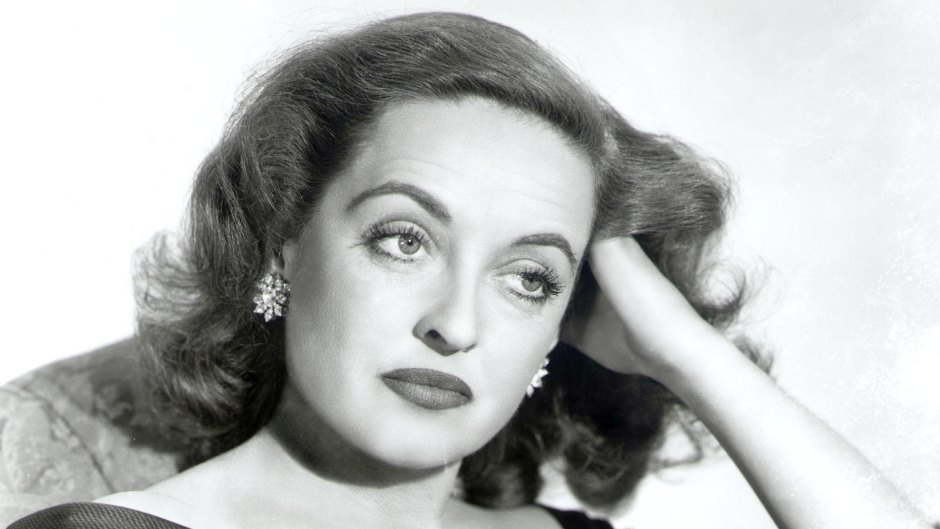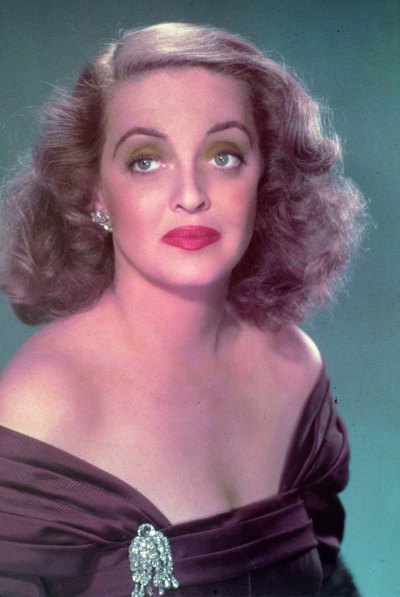
Moviestore/Shutterstock
Bette Davis Remembered By Personal Assistant 30 Years After Her 1989 Death: She ‘Supported Women’
Kathryn Sermak was only 22 when she was hired to be Bette Davis‘ personal assistant in 1979. She spent the next decade working for the screen icon and became as close to her as any family member. Now, 30 years after the star’s death at 81 in 1989, Kathryn is opening up about the unforgettable life lessons she learned from Bette.
“She was so honest and extremely fair,” Kathryn, author of Miss D & Me: Life With the Invincible Bette Davis, tells Closer Weekly — in the magazine’s latest issue, on newsstands now — of the famously outspoken actress. “She used to say it might have been easier for her if she had sugarcoated things, because back then a lot of people did that, but she didn’t.”
Despite her infamous clashes with Joan Crawford on the set of 1962’s Whatever Happened to Baby Jane? (as portrayed on FX’s Feud), Bette “supported women,” says Kathryn. “She didn’t like the old system, where women would fight like cats. She was my biggest confidant, she gave me compliments and she taught me confidence.”
When Kathryn moved in with a French man who refused to do his own laundry or dishes, Bette told her, “Don’t you lift a finger! You just let them stack up.” The piles grew, and eventually, “I came home one day, and all the clothes were washed and put away, and all the dishes were done. I never said a word, but he got the message loud and clear. She was brilliant and so right!”

Bette’s fiercely independent streak made it difficult for her to find lasting love in the days when men expected women to be subservient. She wed four times, and Kathryn says “the love of her life was Willie Wyler,” who was married to another woman when he directed Bette’s Oscar-nominated turns in Jezebel, The Little Foxes and The Letter. “But it just wouldn’t have worked because they were both very strong people.”
Bette and her fourth husband, All About Eve costar Gary Merrill, had three kids — daughters B.D. and Margot and son Michael. But they split after a 10-year marriage in 1960 “because he had a drinking problem,” says Kathryn. After that, Bette joked, “I’d marry again if I found a man who had $15 million, would sign over half to me and guarantee that he’d be dead within a year.”
But seriously, “the men who married Miss D were often called ‘Mr. Davis,’” Kathryn says. “No man wants to be called that — they have their pride and ego.” As Bette said, “Strong women only marry weak men.”
Besides, Bette was truly married to her career. “I am doomed to an eternity of compulsive work,” she said. “No set goal achieved satisfies. Success only breeds a new goal. The golden apple devoured has seeds. It is endless.”

During her final decade, Bette faced numerous challenges, including breast cancer and a series of strokes that left her partially paralyzed and with slurred speech. “She had to learn how to walk and talk again,” says Kathryn. “But it didn’t affect her brain — it was still going a mile a minute.” It also didn’t affect her work ethic, as she kept acting up until her death. “She was never one to sit on her laurels and do nothing,” says Kathryn.
B.D.’s 1985 tell-all memoir, My Mother’s Keeper, broke Bette’s heart. “Miss D loved B.D. more than anything in the world,” Kathryn says. Bette laughed it off with typically wicked wit: “If you’ve never been hated by your child, you’ve never been a parent.” But in reality, says Kathryn, “that probably killed Miss D more than anything.”
Still, her legacy endures for her legions of admirers worldwide. “The fans were always her bread and butter,” says Kathryn. “They’re the ones who keep Miss D alive.”
For more on your favorite celebs, pick up the latest issue of Closer Weekly, on newsstands now — and be sure to sign up for our newsletter for more exclusive news!








































